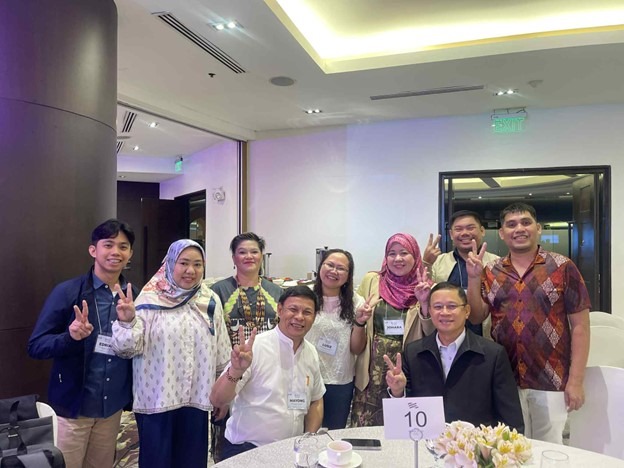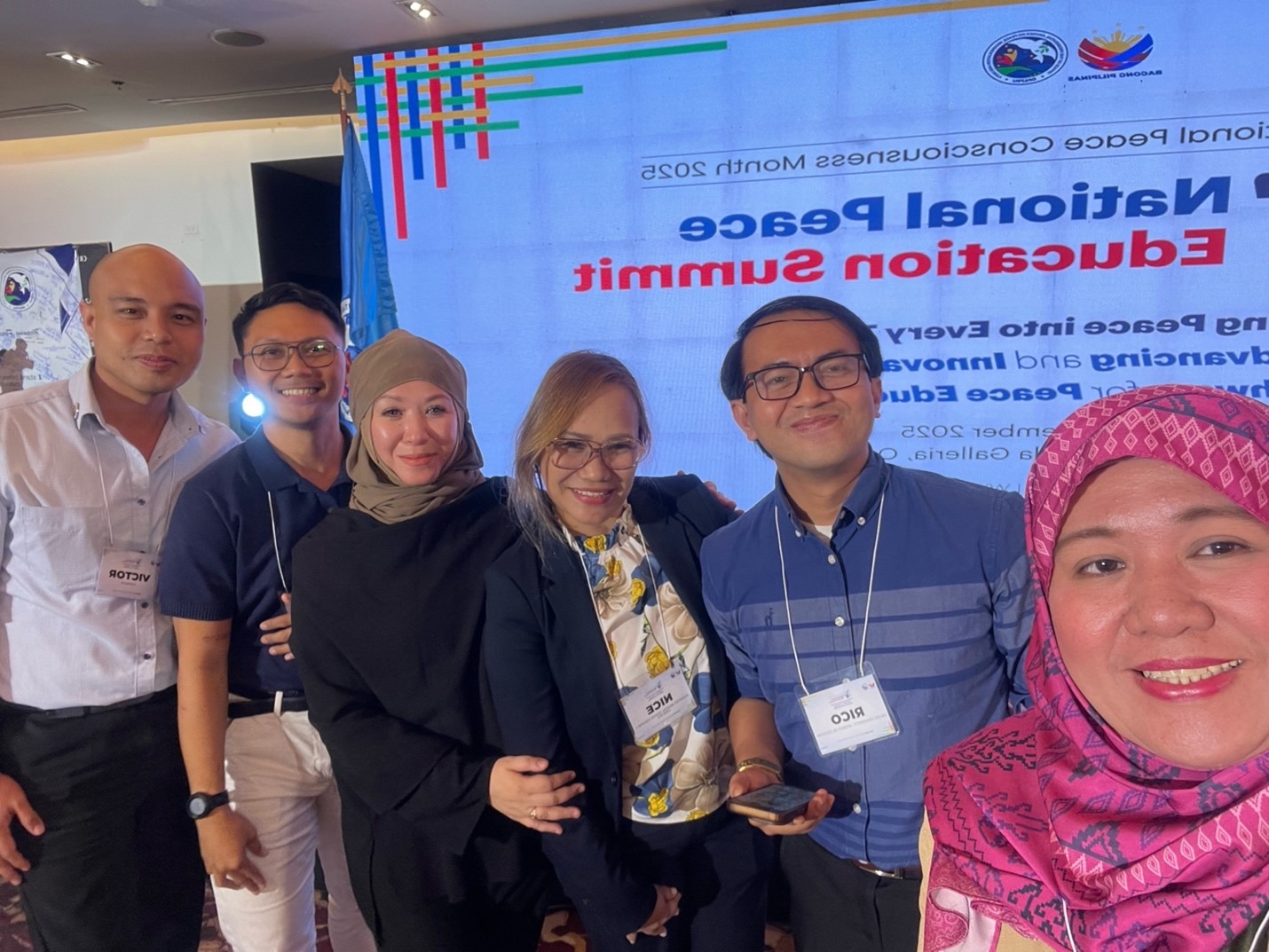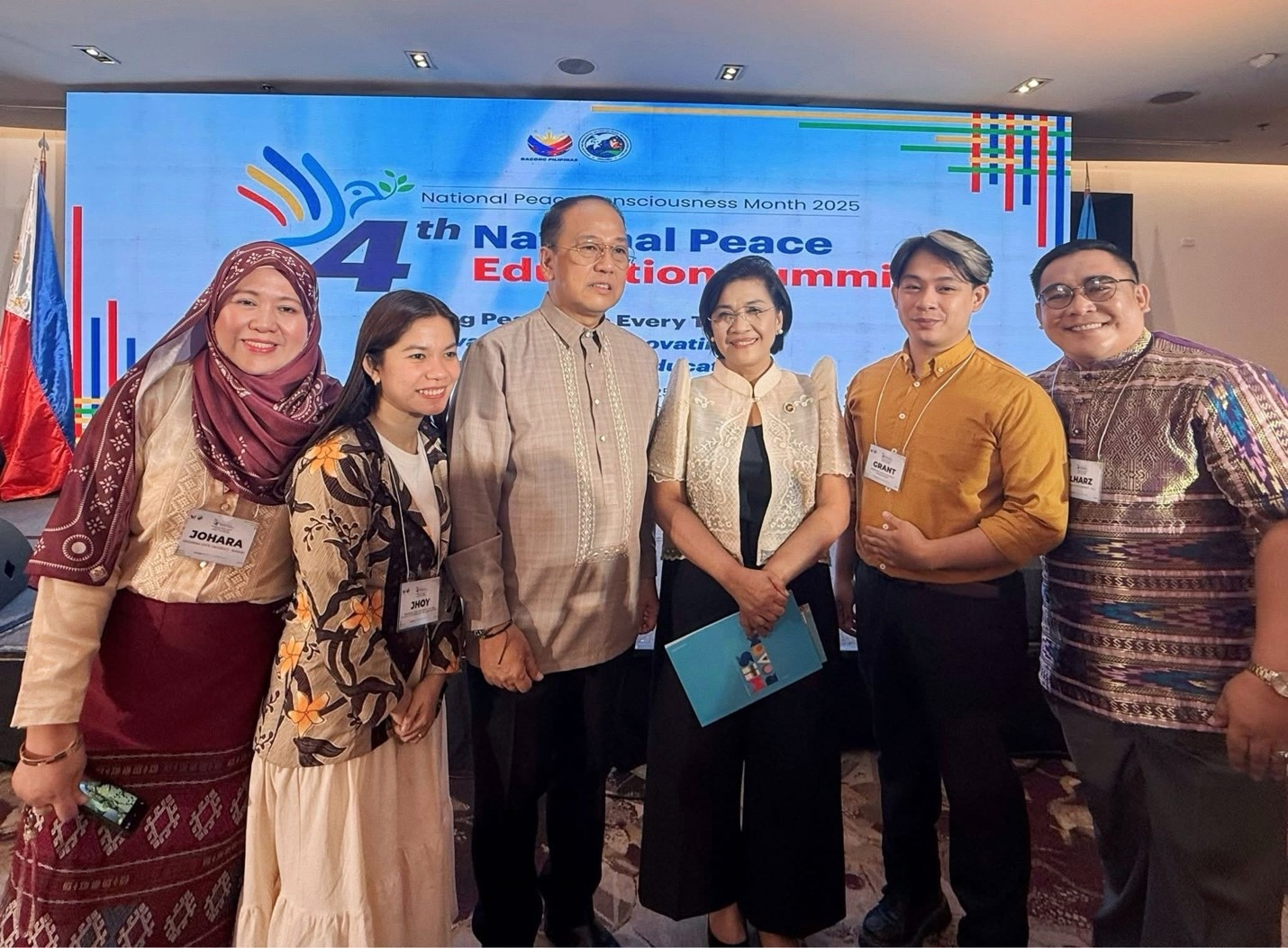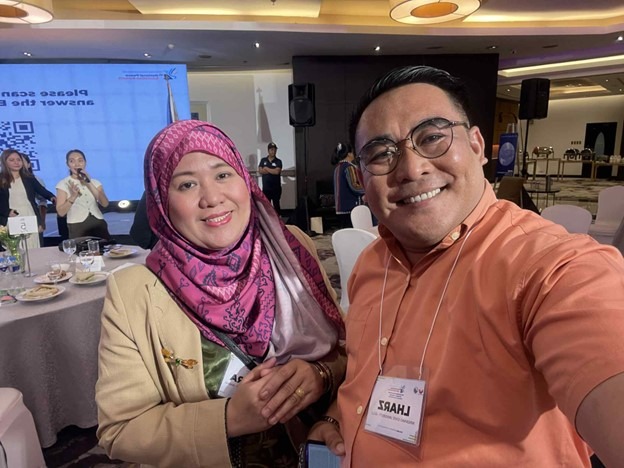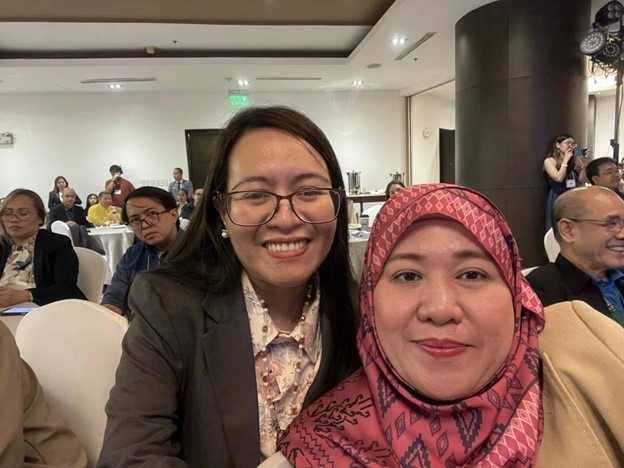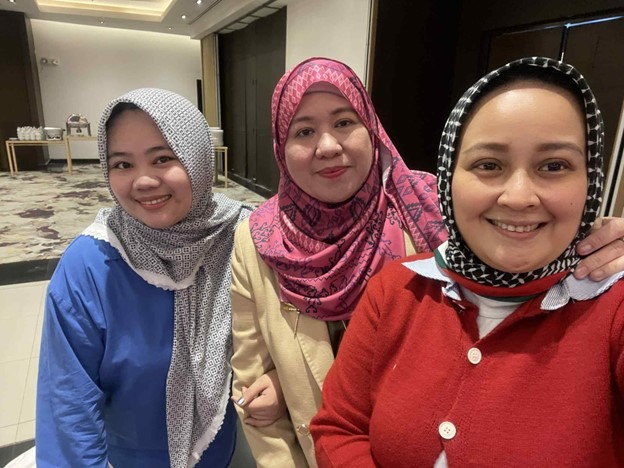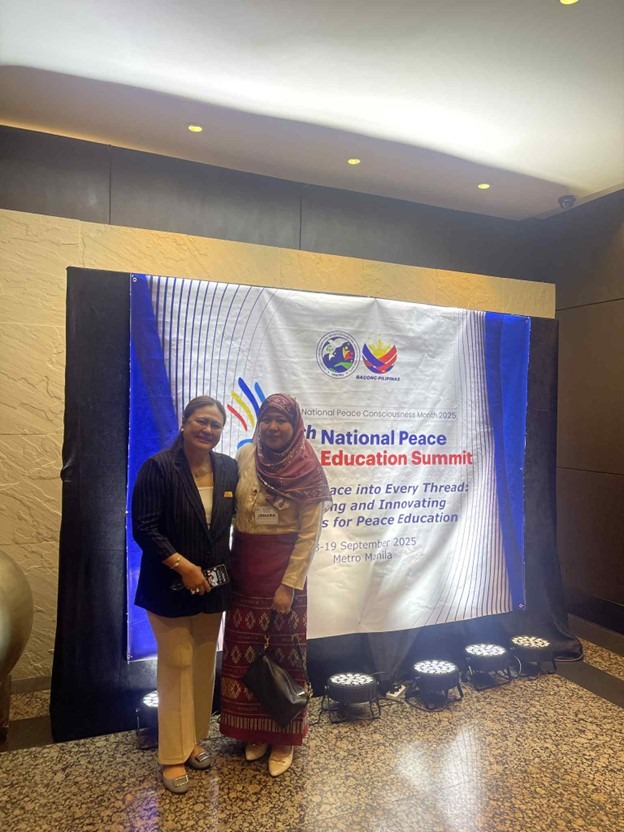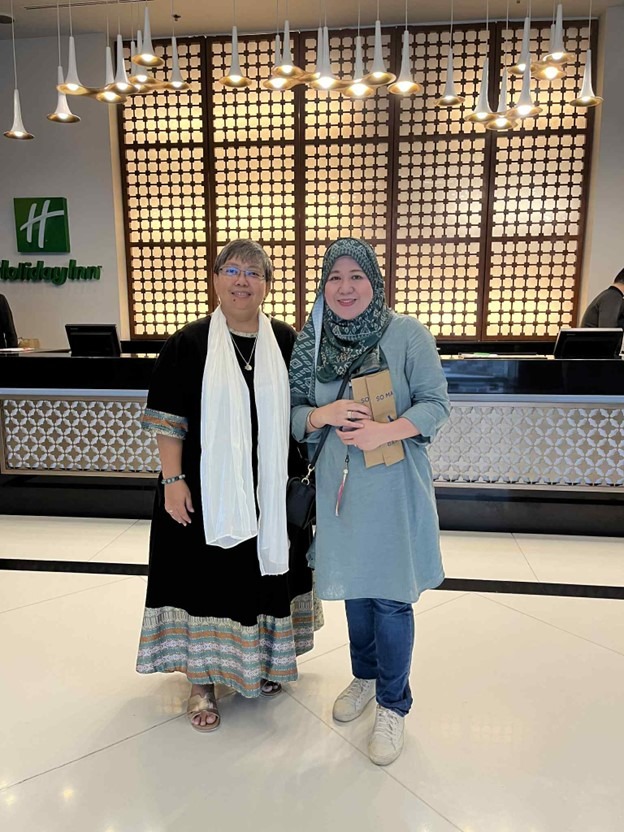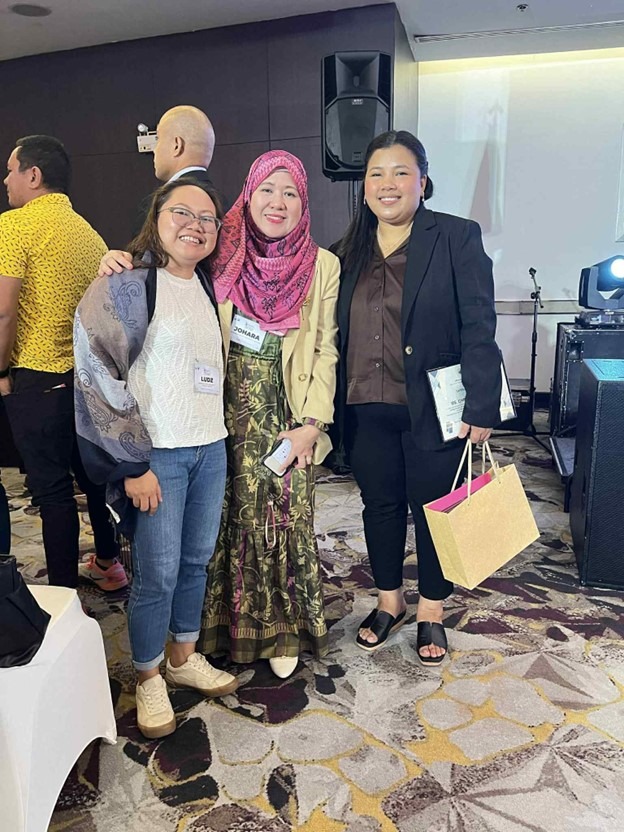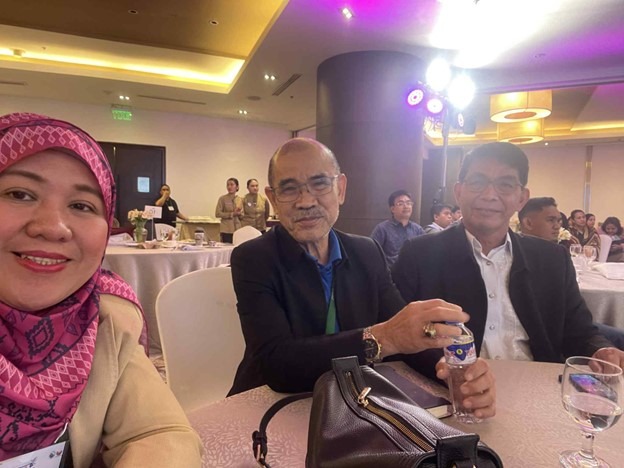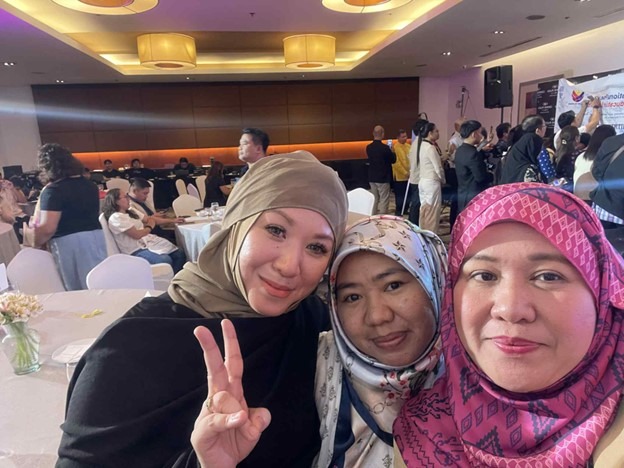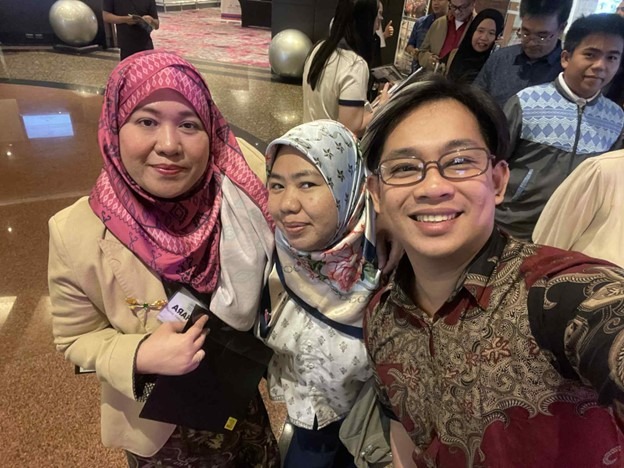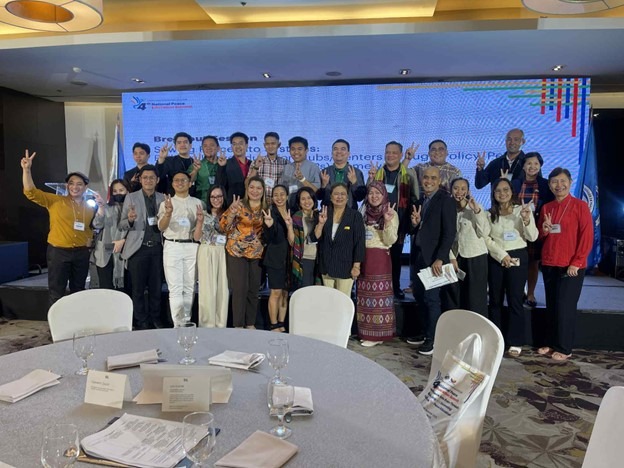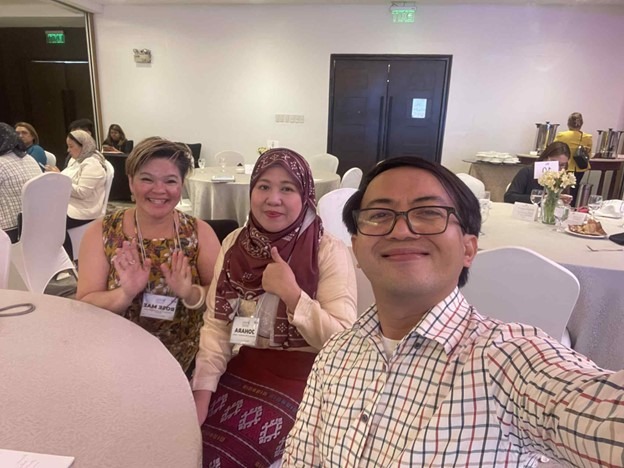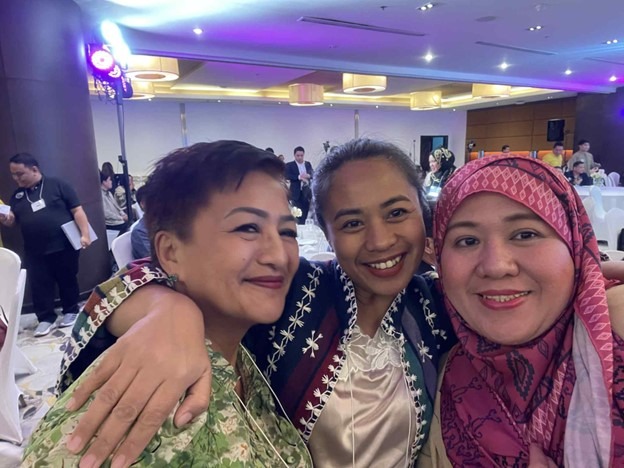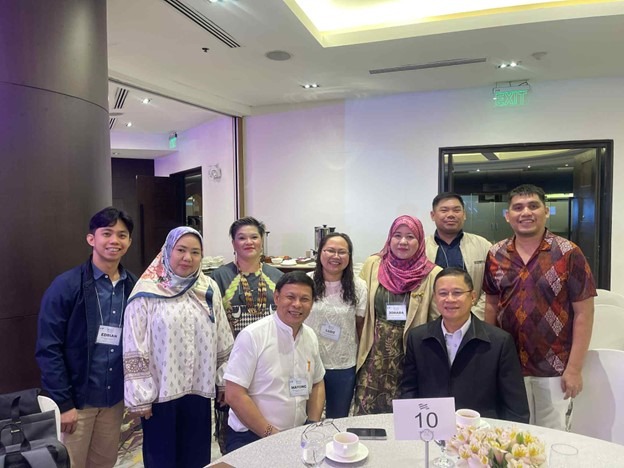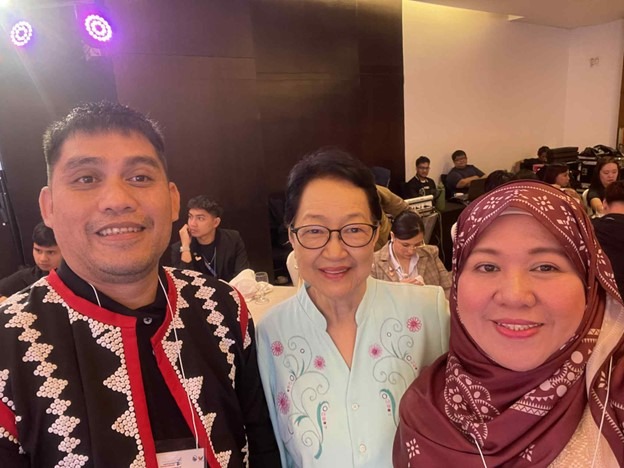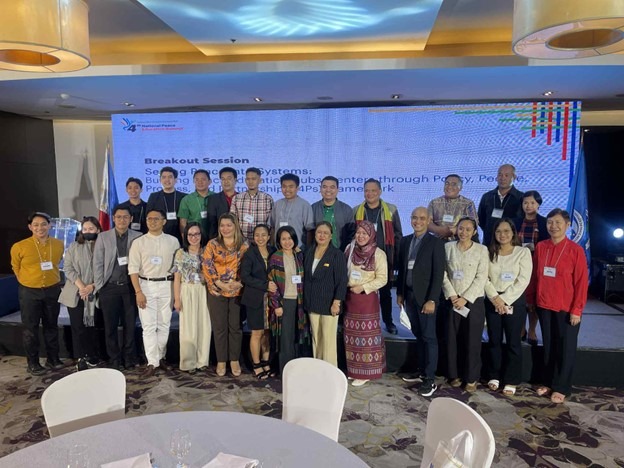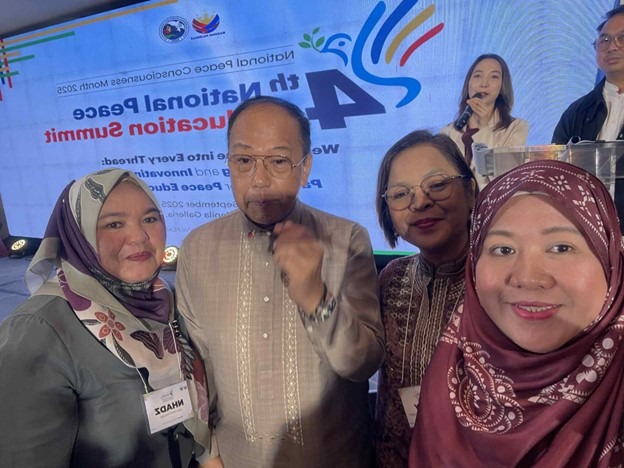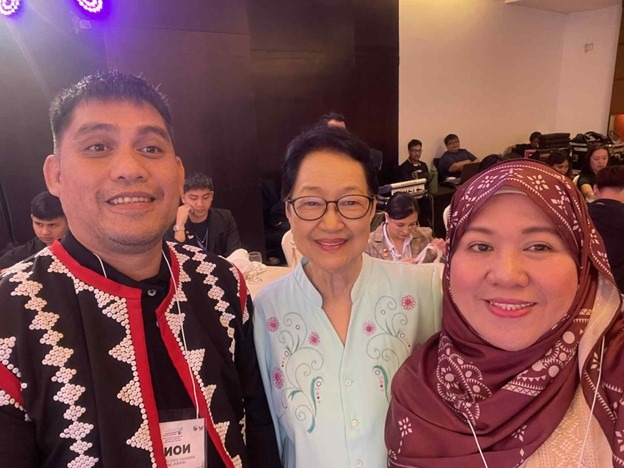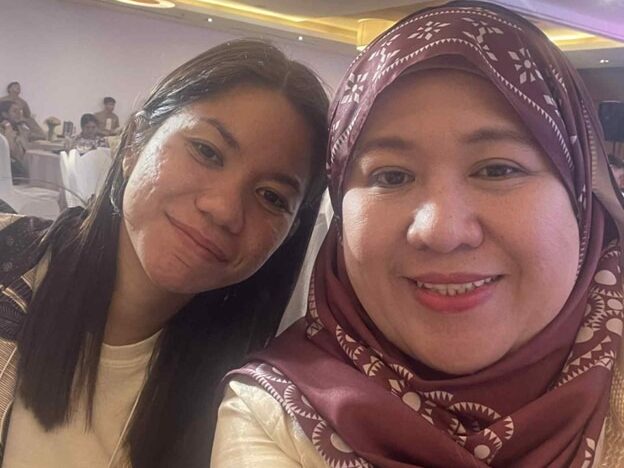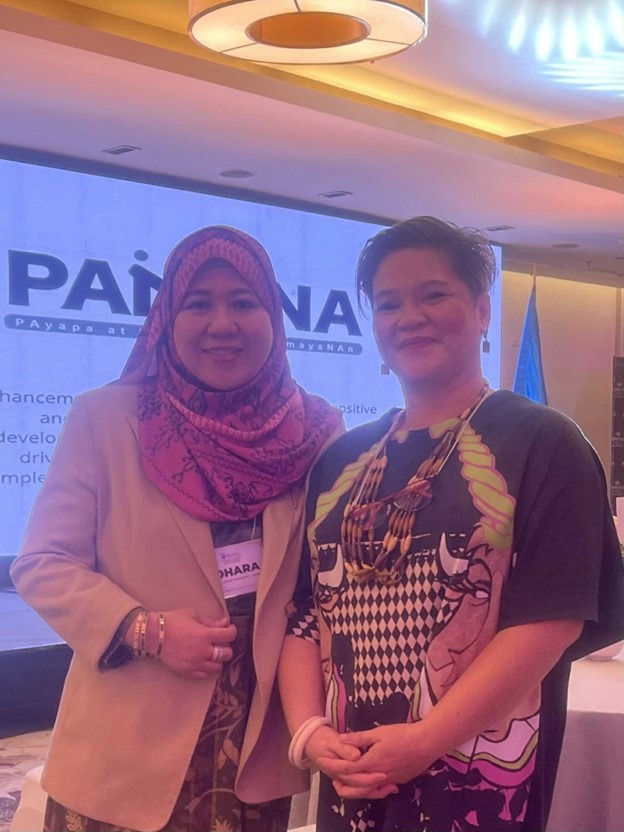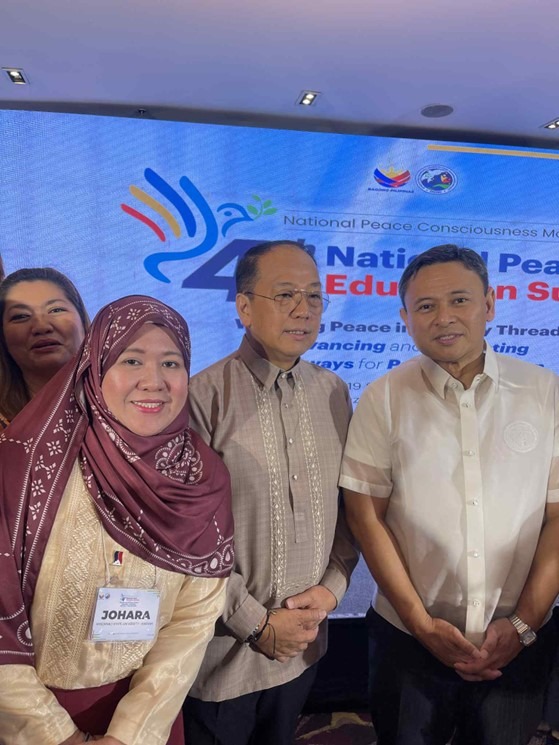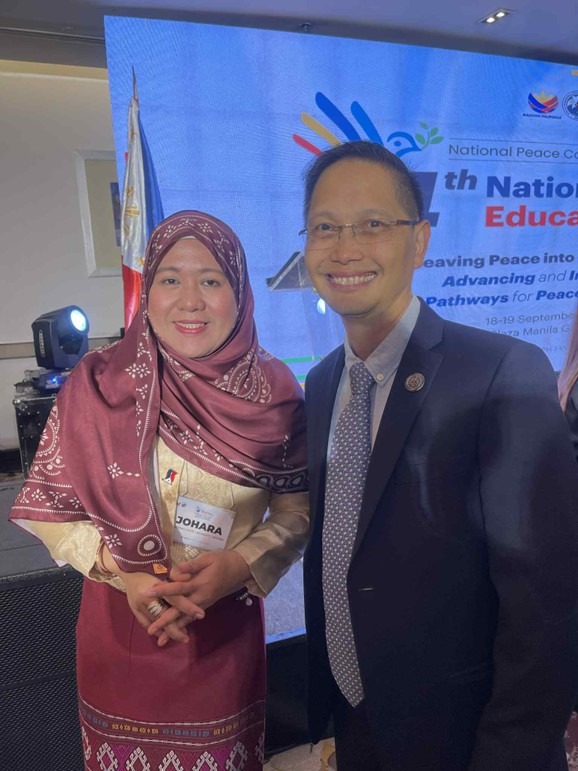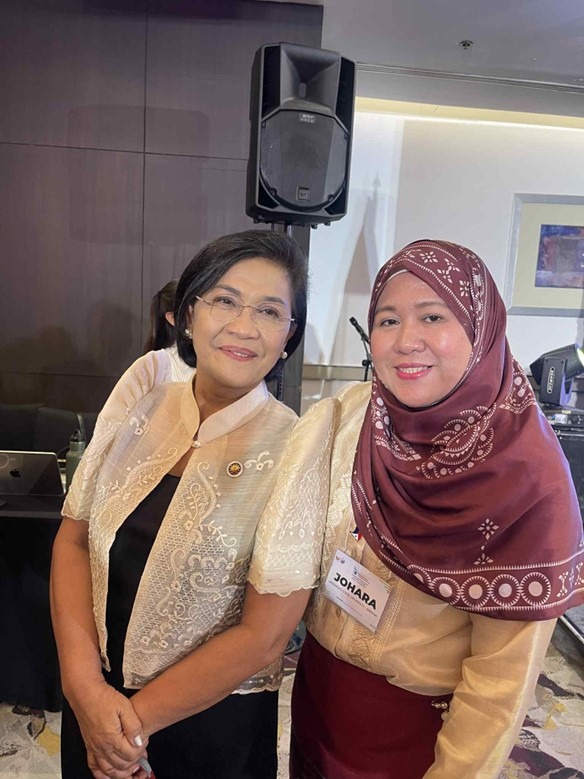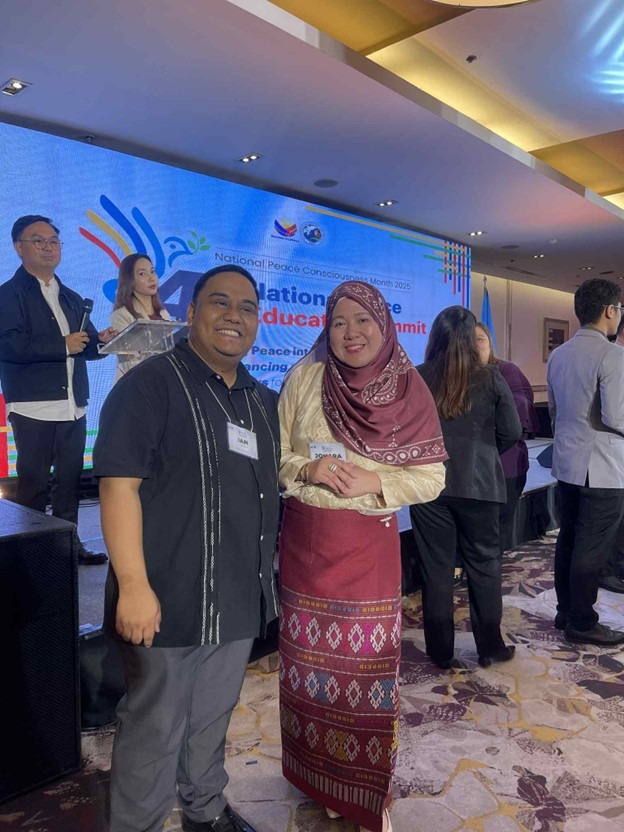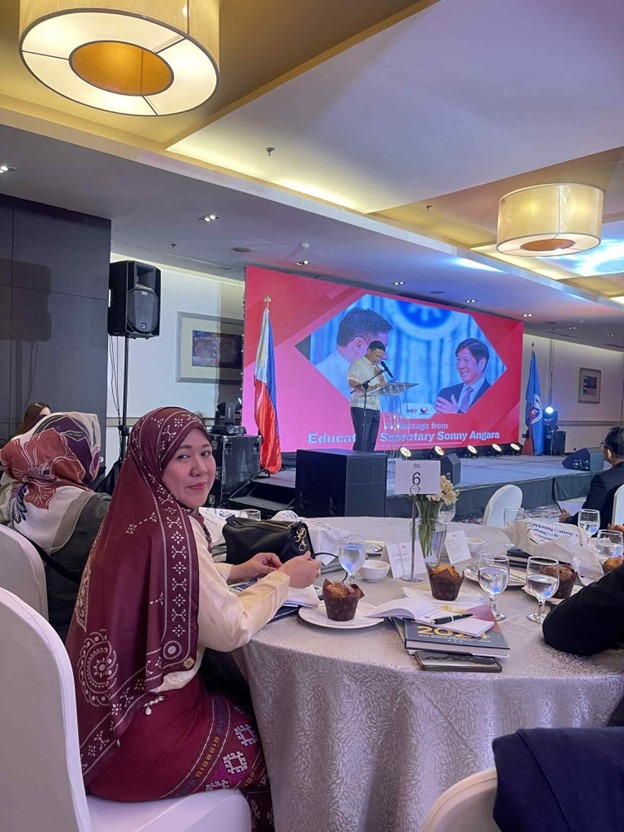By: Johara D. Alangca-Azis, PhD
The 4th National Peace Education Summit, which unfolded gracefully with a calm yet determined focus on September 18–19, 2025 at the Crowne Plaza Galleria Manila in Quezon City, brought together academic leaders, policymakers, educators, youth, civil society representatives from across the country, and peace educators from various campuses of the Mindanao State University System such as MSU-Main Campus, Marawi City; MSU-General Santos; MSU-Tawi-Tawi; MSU-Sulu; MSU-Maguindanao; and MSU-Buug among others. What initially started as a formal assembly swiftly turned into a crucial turning point for the nation, redefining peace —not as a distant aspiration, but as a tangible aim woven into the fabric of education, governance, and community life. The summit was unified by a central theme, “Weaving Peace in Every Thread: Advancing and Innovating Pathways for Peace Education,” which captured both craft and ambition and framed every discussion, every agreement, and every proposal of the gathering. It emphasized a deliberate and conscious commitment and dedication to integrate peace education into the fabric of learning and public life, ensuring that peace is not isolated to a singular module but is intricately woven throughout curricula, training programs, policy development, and community involvement.
It is worthy to note that the Summit’s centerpiece was the signing of the Memorandum of Understanding (MOU) among the most consequential voices in Philippine education, peace and public policy, namely: Secretary Carlito G. Galvez, Jr. of the Office of the Presidential Adviser on Peace, Reconciliation and Unity (OPAPPRU); Secretary Sonny Angara of the Department of Education (DepEd), Secretary Jose Francisco B. Benitez of the Technical Education and Skills Development Authority (TESDA); and Chairperson Shirley C. Agrupis of the Commission on Higher Education (CHED). The MOU seeks to advance stronger cooperation among agencies in the integration, adoption, and promotion of peace education nationwide. Such signing signaled more than cross-sector cooperation; instead, it marked a commitment to institutionalize peace education across the spectrum of learning—from formal schools to vocational training and beyond. The document laid a practical roadmap: shared resources, aligned curricula, and capacity-building initiatives designed to endure across political administrations and shifting agendas. In that moment, I felt that the act of signing the MOU appeared to be a unified breath– steady and purposeful, and setting the stage for an educational system that teaches peace as a practical endeavor rather than a theoretical concept. Although the MSU System has already implemented the three-unit mandatory course for all undergraduate students across its campuses—the Fundamentals of Peace Education (FPE 101)—the unfolding path suggest that peace education will be sustained through enduring institutionalization, ensuring its continuity beyond inaugural initiatives.
A second pillar of the summit was the conduct of the two (2) panel discussions that featured brilliant and seasoned peace advocates, educators and policymakers, and focused on the themes “Weaving Peace into Teacher Education: Transformation Future Educators as Champions of Peace,” and “Knitting Peace in the Algorithm: Navigating Digital Peacebuilding in the Age of AI.” These were graciously moderated by the Dean of the College of Social Sciences and Humanities of the MSU-General Santos City, Dr. Mayong Aguja and the OIC President of the Calaca Global College, Dr. Dan Jefferson Lopez, respectively. The exceptional panel discussants included, among others: the Executive Director of the Center for Peace Education- Miriam College, Dr. Loreta N. Castro; the National President of the Philippine Association for Teachers and Educators (PAFTE), Dr. Brenda B. Corpus; the Executive Director V of the Teacher Education Council (TEC) Dr. Jennie V. Jocson; the Country Lead of the National Models for Women’s Safety Online (NMWSO), Ms. Cristine Sumong-Oy; and the Founding President and Executive Director of the Teach Peace Build Peace Movement, Ms. Bai Rohaniza Sumndad-Usman. Throughout the insightful discussions, the human dimension came to the fore. On-stage voices spoke of campuses becoming laboratories for peace—where peer mediation, respectful dissent, and collaborative problem-solving are not exceptions but daily practices. Off-stage conversations, other the other hand, revealed how partnerships extend peace literacy beyond school grounds, reaching rural communities and urban neighborhoods alike. An educator’s reflection on mapping conflicts through the lenses of people and needs offered a simple, powerful reframing: conflict as a human story to be understood, not a puzzle to be solved at a distance.
Another highlight of the event was the engaging and remarkable breakout session titled “Sewing Peace into Systems: Building Peace Education Hubs/Centers through Policy, People, Process and Partnership (4Ps) Framework” that was skillfully facilitated by the Assistant Dean of the College of Education of the MSU-General Santos City, Dr. Jovar Pantao. During the session, the members of the four (4) groups- People, Process, Policy and Partnership actively shared their knowledge and experiences regarding their best practices to teach and build peace both in the classrooms and in the communities, making the discussions more meaningful and impactful.
Moreover, the cornerstone of the event was the launching of the Philippine Peace Institute (PPI) by the OPAPPRU during the final day of the gathering. A national hub for advancing peace, reconciliation, and unity through research and capacity-building, this institute positioned itself as an indispensable bridge between scholarly inquiry and policy implementation. Its promise was concrete: to produce evidence-based recommendations, foster interdisciplinary collaboration, and offer practitioner-focused training. For educators and policymakers alike, the PPI represented a trusted ally—a hub where data, field experience, and strategic insight converge to inform curricula, pedagogy, and program design with measurable impact.
As a representative of MSU-Main Campus, Marawi City, at the event, I noticed three compelling implications that emerged from the conversations. Firstly, institutionalization of peace education ensures its sustainability by integrating it into national policies and program structures, thus shielding it from political changes. Secondly, collaboration across various agencies broadens the scope to include a wide range of learners—such as formal students, informal participants, and vocational trainees—thereby fostering a more inclusive peace education environment. Lastly, the PPI offers a strong feedback system, where empirical data informs curriculum, teaching methods, and practices, allowing for continuous improvement and the expansion of effective strategies.
Finally, as the event concluded, a shared and lasting image remained: four symbols aligned, charting a strategic path from policy to classroom, and a strengthened belief that education can reshape social norms towards justice and coexistence. The summit went beyond merely listing aspirations; it put them into action. It turned abstract promises into a plan for implementation—an enduring statement that peace education is vital to national progress and the fabric of daily life.
Alhamdulillah! Alhamdulillah! Alhamdullillah for the opportunity to have taken part in the historic event! Alhamdulillah for our shared wisdom and open-hearted collaborations during the event, and I hope our conversations sustain hope, illuminate paths to understanding and be translated into everyday acts of peace within our families, classrooms, communities and the nation as a whole. Our profound gratitude also goes to the MSU System President, Atty Paisalin P. Tago, CPA as well as the Campus Chancellors and Heads for the relentless support provided to the peace educators of the various MSU Campuses.

